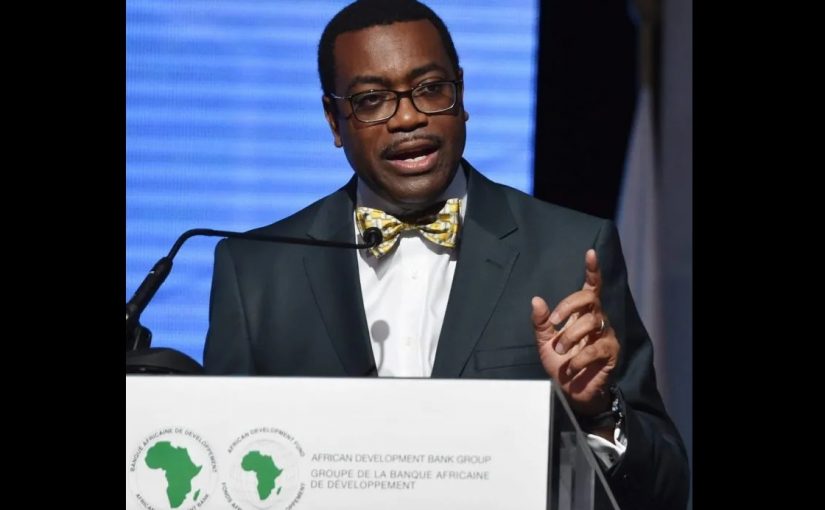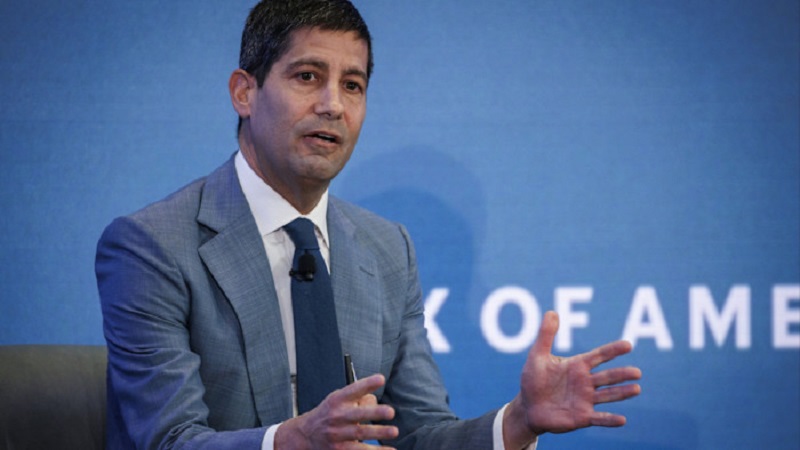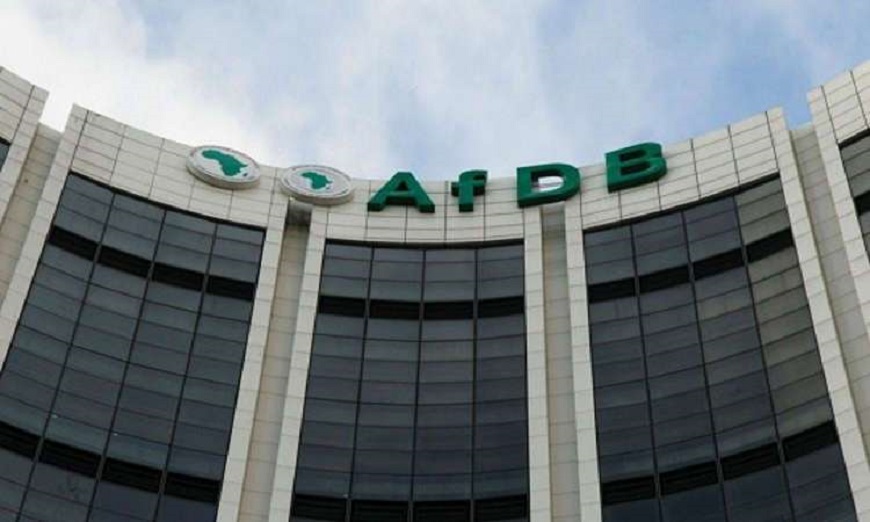World
AfDB Mobilizes Funds for Projects Via Integrated Platforms

By Kester Kenn Klomegah
The African Development Bank (AfDB), which sets its primary tasks of contributing to the continent’s economic and social development by providing the necessary concessional funding for projects and programmes, as well as offering and coordinating assistance in capacity-building activities, has now embarked on various post-COVID-19 initiatives throughout the continent, especially in the least developed African countries.
In the latest was the mid-March event where potential investors have examined more than $50 billion of curated bankable projects in key priority sectors identified in the Africa Investment Forum’s 2020 Unified Response to COVID-19 initiative.
The sectors include agriculture and agro-processing; education; energy and climate; healthcare; minerals and mining; information and communications technology and telecommunication; and industrialization and trade. Nine of these projects are women-led, with a potential value of $5 billion.
The AfDB has secured $32.8 billion in investment commitments for projects in Africa. The largest deal secured at the three-day Africa Investment Forum was $15.6 billion for the Lagos-Abidjan mega highway of about 1,200 km (745 miles) will have four to six lanes, connecting West Africa’s two major cities in Nigeria and Ivory Coast, said AfDB President, Mr Akinwumi Adesina.
“Africa is a very bankable continent. We’ve gone through hard times because of the Covid-19 situation but here we are on a rebound,” said Adesina. “Africa is back for investments.” The projects, part of the bank’s Covid-19 response, touch on sectors including agriculture and agro-processing, education, energy and climate, healthcare, minerals and mining, and information and communications technology.
Adesina said that on the health side, projects include a new medical city in Accra, Ghana, a fund for health services for low-income populations in South Africa, and two platforms for manufacturing pharmaceutical products: one in West Africa and one in Kenya.
The African Continental Free Trade Area (AfCFTA), launched under the African Union, provides unique and valuable access to an integrated African market of over 1.3 billion people. In practical reality, it aims at creating a continental market for goods and services, with free movement of business people and investments in Africa.
The bank together with health giants has also set eyes on capitalizing on the advantages and conditions to push for healthcare issues. It, as well, is expected to advance the integration of African markets and standards for pharmaceuticals and other goods.
As a result, the Africa Investment Forum is curating several investment-ready transactions that align closely with the three healthcare pillars outlined by the AfDB President.
The investor boardroom sessions feature a $49 million transaction involving the construction of a pharmaceutical and biomedical hub in West Africa. The hub will incorporate a logistics platform, research and development facilities and an academic institution that could serve the region and the wider continent in vaccine manufacturing and drug and medical development.
A second vaccine-related transaction is a $45 million production plant in East Africa, which the World Health Organization (WHO) has pre-qualified. The plant will routinely produce three vaccines, including one for COVID-19.
It was no surprise that the WHO recently announced that Kenya, Senegal, Tunisia, South Africa, Egypt and Nigeria would be the first participants in its mRNA technology transfer hub initiative. The initiative paves the way for the manufacture and licensing of a range of pharmaceuticals in these six countries. It is likely to trigger strong investor interest in Africa’s burgeoning pharmaceutical sector.
The Africa Investment Forum and AfDB have championed two initiatives that are driving trade integration and regulatory harmonization throughout Africa. These are the African Medical Agency and the Africa Continental Free Trade Area.
In order to realize further its set goals, the AfDB has approved funding of $127.8 million to Niger. The funds approved by the Board of Directors of the African Development Fund, the Group’s concessional arm, will be used for a project to open up access to farming and pastoral lands in the east of the country, along its border with Nigeria.
It has also approved a $125.3 million loan to finance the first phase of the Dodoma Resilient and Sustainable Water Development and Sanitation Program in Tanzania.
Specifically, the loan from the African Development Fund will cover the construction of a dam and water treatment plant to address supply challenges in Dodoma City and the towns of Bahi, Chemba and Chamwino.
As a lead partner of the 9th World Water Forum, it plans to earmark more than $5.6 million to support the forum, billed as the world’s largest international water-related gathering. The event will be an opportunity for attendees to gain a deeper insight into how the bank provides technical and financial support to regional member countries to ensure water security for sustainable development in their territories through its Water Development and Sanitation Department.
“As one of the leading financing institutions on the continent with a commitment to the development of Africa’s water and sanitation sectors, it is a natural fit for the African Development Bank to support the Government of Senegal in co-hosting this Forum,” said Beth Dunford, the Bank’s Vice President for Agriculture, Human and Social Development. “Failure is not an option when it comes to mitigating the imbalance between water needs and water availability to boost economic development and stability,” she added.
Last month, for instance, it approved a $1.4 million grant for enhancing private sector engagement and capacity building for refugees and internally displaced persons in fragile areas of northern Mozambique.
The project will be implemented by the global refugee agency UNHCR, collaborating with the Government of Mozambique. The grant is from the Transition Support Facility Pillar III.
Mozambique is host to 28,000 refugees and asylum seekers and over 735,000 people displaced by ongoing violence in Cabo Delgado Province. The majority of the internally displaced people remained in the province. An estimated 69,000 people moved to Nampula, and the remaining moved to the provinces of Niassa, Sofala, and Zambezia.
As the United States and European sanctions broadened due to the “special military operation”, largely directed at “demilitarization” and “denazification” in Ukraine, there are, undoubtedly, terrible impacts on the African economy: increase in the price of gas, oil, agricultural raw materials…et cetera.
There is also some African ambiguity about Russia, with the public seeing Putin as a strongman who would therefore have the right to decide on a country’s future security alliances while being very concerned about their sovereignty.
The Russia-Ukraine crisis that started on February 24, to a considerable extent, has affected a number of African countries. The AfDB plans to raise $1bn (£759m) to support agricultural production in Africa and shield the continent from potential food shortages arising from the Russia-Ukraine crisis.
Agricultural trade between the continent’s countries and Russia and Ukraine is significant. African countries imported $4 billion worth of agricultural products from Russia in 2020.
About 90% of these products were wheat, and 6% were sunflower oil. The main importing countries were Egypt, which accounted for almost half of the imports, followed by Sudan, Nigeria, Tanzania, Algeria, Kenya and South Africa.
The UN also says at least 15 African countries get more than half their wheat from the two warring nations. Somalia, Benin, Egypt and Sudan are the most dependent. “The AfDB sees these increases in prices of wheat, maize and soya beans as potentially going to worsen food insecurity and raise inflation,” Mr Adesina said.
The bank intends to organize a meeting of African finance and agriculture ministers to roll out that plan. Through the fund, AfDB wants to increase the production of wheat rice, maize and soya beans using climate-resilient technologies, including heat-tolerant and drought-tolerant crop varieties. The heat-tolerant wheat variety has already been experienced in Sudan and Ethiopia.
The Africa Investment Forum, launched in 2018, is a multi-stakeholder, multi-disciplinary platform that advances private and public-private partnership projects to bankability. It raises capital and accelerates deals to financial closure.
The Africa Investment Forum is an initiative of the eight founding partners including the African Development Bank; Africa 50; the Africa Finance Corporation; the Africa Export-Import Bank; the Development Bank of Southern Africa; the Trade and Development Bank; the European Investment Bank; and the Islamic Development Bank.
World
Today’s Generation of Entrepreneurs Value Flexibility, Autonomy—McNeal-Weary

By Kestér Kenn Klomegâh
The Young African Leaders Initiative (YALI) is the United States’ signature step to invest in the next generation of African leaders. Since its establishment in 2010 by Obama administration, YALI has offered diverse opportunities, including academic training in leadership, governance skills, organizational development and entrepreneurship, and has connected with thousands of young leaders across Africa. This United States’ policy collaboration benefits both America and Africa by creating stronger partnerships, enhancing mutual prosperity, and ensuring a more stable environment.
In our conversation, Tonya McNeal-Weary, Managing Director at IBS Global Consulting, Inc., Global Headquarters in Detroit, Michigan, has endeavored to discuss, thoroughly, today’s generation of entrepreneurs and also building partnerships as a foundation for driving positive change and innovation in the global marketplace. Here are the excerpts of her conversation:
How would you describe today’s generation of entrepreneurs?
I would describe today’s generation of entrepreneurs as having a digital-first mindset and a fundamental belief that business success and social impact can coexist. Unlike the entrepreneurs before them, they’ve grown up with the internet as a given, enabling them to build global businesses from their laptops and think beyond geographic constraints from day one. They value flexibility and autonomy, often rejecting traditional corporate ladders in favor of building something meaningful on their own terms, even if it means embracing uncertainty and financial risk that previous generations might have avoided.
And those representing the Young African Leaders Initiative, who attended your webinar presentation late January 2026?
The entrepreneurs representing the Young African Leaders Initiative are redefining entrepreneurship on the continent by leveraging their unique perspectives, cultural heritage, and experiences. Their ability to innovate within local contexts while connecting to global opportunities exemplifies how the new wave of entrepreneurs is not confined by geography or conventional expectations.
What were the main issues that formed your ‘lecture’ with them, Young African Leaders Initiative?
The main issues that formed my lecture for the Young African Leaders Initiative were driven by understanding the importance of building successful partnerships when expanding into the United States or any foreign market. During my lecture, I emphasized that forming strategic alliances can help entrepreneurs navigate unfamiliar business environments, access new resources, and foster long-term growth. By understanding how to establish strong and effective partnerships, emerging leaders can position their businesses for sustainable success in global markets. I also discussed the critical factors that contribute to successful partnerships, such as establishing clear communication channels, aligning on shared goals, and cultivating trust between all parties involved. Entrepreneurs must be proactive in seeking out partners who complement their strengths and fill gaps in expertise or resources. It is equally important to conduct thorough due diligence to ensure that potential collaborators share similar values and ethical standards. Ultimately, the seminar aimed to empower YALI entrepreneurs with practical insights and actionable strategies for forging meaningful connections across borders. Building successful partnerships is not only a pathway to business growth but also a foundation for driving positive change and innovation in the global marketplace.
What makes a ‘leader’ today, particularly, in the context of the emerging global business architecture?
In my opinion, a leader in today’s emerging global business architecture must navigate complexity and ambiguity with a fundamentally different skill set than what was previously required. Where traditional leadership emphasized command-and-control and singular vision, contemporary leaders succeed through adaptive thinking and collaborative influence across decentralized networks. Furthermore, emotional intelligence has evolved from a soft skill to a strategic imperative. Today, the effective modern leader must possess deep cross-cultural intelligence, understanding that global business is no longer about exporting one model worldwide but about genuinely integrating diverse perspectives and adapting to local contexts while maintaining coherent values.
Does multinational culture play in its (leadership) formation?
I believe multinational culture plays a profound and arguably essential role in forming the kind of leadership required in today’s global business environment. Leaders who have lived, worked, or deeply engaged across multiple cultural contexts develop a cognitive flexibility that’s difficult to replicate through reading or training alone. More importantly, multinational exposure tends to dismantle the unconscious certainty that one’s own way of doing things is inherently “normal” or “best.” Leaders shaped in multicultural environments often develop a productive discomfort with absolutes; they become more adept at asking questions, seeking input, and recognizing blind spots. This humility and curiosity become strategic assets when building global teams, entering new markets, or navigating geopolitical complexity. However, it’s worth noting that multinational experience alone doesn’t automatically create great leaders. What matters is the depth and quality of cross-cultural engagement, not just the passport stamps. The formation of global leadership is less about where someone has been and more about whether they’ve developed the capacity to see beyond their own cultural lens and genuinely value differences as a source of insight rather than merely tolerating them as an obstacle to overcome.
In the context of heightening geopolitical situation, and with Africa, what would you say, in terms of, people-to-people interaction?
People-to-people interaction is critically important in the African business context, particularly as geopolitical competition intensifies on the continent. In this crowded and often transactional landscape, the depth and authenticity of human relationships can determine whether a business venture succeeds or fails. I spoke on this during my presentation. When business leaders take the time for face-to-face meetings, invest in understanding local priorities rather than imposing external agendas, and build relationships beyond the immediate transaction, they signal a different kind of partnership. The heightened geopolitical situation actually makes this human dimension more vital, not less. As competition increases and narratives clash about whose model of development is best, the businesses and nations that succeed in Africa will likely be those that invest in relationships characterized by reciprocity, respect, and long-term commitment rather than those pursuing quick wins.
How important is it for creating public perception and approach to today’s business?
Interaction between individuals is crucial for shaping public perception, as it influences views in ways that formal communications cannot. We live in a society where word-of-mouth, community networks, and social trust areincredibly important. As a result, a business leader’s behavior in personal interactions, their respect for local customs, their willingness to listen, and their follow-through on commitments have a far-reaching impact that extends well beyond the immediate meeting. The geopolitical dimension amplifies this importance because African nations now have choices. They’re no longer dependent on any single partner and can compare approaches to business.
From the above discussions, how would you describe global business in relation to Africa? Is it directed at creating diverse import dependency?
While it would be too simplistic to say global business is uniformly directed at creating import dependency, the structural patterns that have emerged often produce exactly that outcome, whether by design or as a consequence of how global capital seeks returns. Global financial institutions and trade agreements have historically encouraged African nations to focus on their “comparative advantages” in primary commodities rather than industrial development. The critical question is whether global business can engage with Africa in ways that build productive capacity, transfer technology, develop local talent, and enable countries to manufacture for themselves and for export—or whether the economic incentives and power irregularities make this structurally unlikely without deliberate policy intervention.
World
Russia Expands Military-Technical Cooperation With African Partners

By Kestér Kenn Klomegâh
Despite geopolitical complexities, tensions and pressure, Russia’s military arms and weaponry sales earned approximately $15 billion at the closure of 2025, according to Kremlin report. At the regular session, chaired by Russian President Vladimir Putin on Jan. 30, the Commission on Military and Technical Cooperation with Foreign Countries analyzed the results of its work for 2025, and defined plans for the future.
It was noted that the system of military-technical cooperation continued to operate in difficult conditions, and with increased pressure from the Western countries to block business relations with Russia. The meeting, however, admitted that export contracts have generally performed sustainably. Russian military products were exported to more than 30 countries last year, and the amount of foreign exchange exceeded $15 billion.
Such results provide an additional opportunity to direct funds to the modernization of OPC enterprises, to the expansion of their production capacities, and to advanced research. It is also important that at these enterprises a significant volume of products is civilian products.
The Russian system of military-technical cooperation has not only demonstrated effectiveness and high resilience, but has created fundamental structures, which allow to significantly expand the “geography” of supplies of products of military purpose and, thus strengthen the position of Russia’s leader and employer advanced weapons systems – proven, tested in real combat conditions.
Thanks to the employees of the Federal Service for Military Technical Cooperation and Rosoboronexport, the staff of OPC enterprises for their good faith. Within the framework of the new federal project “Development of military-technical cooperation of Russia with foreign countries” for the period 2026-2028, additional measures of support are introduced. Further effective use of existing financial and other support mechanisms and instruments is extremely important because the volumes of military exports in accordance with the 2026 plan.
Special attention would be paid to the expansion of military-technological cooperation and partnerships, with 14 states already implementing or in development more than 340 such projects.
Future plans will allow to improve the characteristics of existing weapons and equipment and to develop new promising models, including those in demand on global markets, among other issues – the development of strategic areas of military-technical cooperation, and above all, with partners on the CIS and the CSTO. This is one of the priority tasks to strengthen both bilateral and multilateral relations, ensuring stability and security in Eurasia.
From January 2026, Russia chairs the CSTO, and this requires working systematically with partners, including comprehensive approaches to expanding military-technical relations. New prospects open up for deepening military-technical cooperation and with countries in other regions, including with states on the African continent. Russia has been historically strong and trusting relationships with African countries. In different years even the USSR, and then Russia supplied African countries with a significant amount of weapons and military equipment, trained specialists on their production, operation, repair, as well as military personnel.
Today, despite pressure from the West, African partners express readiness to expand relations with Russia in the military and military-technical fields. It is not only about increasing supplies of Russian military exports, but also about the purchase of other weapons, other materials and products. Russia has undertaken comprehensive maintenance of previously delivered equipment, organization of licensed production of Russian military products and some other important issues. In general, African countries are sufficient for consideration today.
World
Trump Picks Kevin Warsh to Succeed Jerome Powell as Federal Reserve Chair

By Adedapo Adesanya
President Donald Trump has named Mr Kevin Warsh as the successor to Mr Jerome Powell as the Federal Reserve chair, ending a prolonged odyssey that has seen unprecedented turmoil around the central bank.
The decision culminates a process that officially began last summer but started much earlier than that, with President Trump launching a criticism against the Powell-led US central bank almost since he took the job in 2018.
“I have known Kevin for a long period of time, and have no doubt that he will go down as one of the GREAT Fed Chairmen, maybe the best,” Mr Trump said in a Truth Social post announcing the selection.
US analysts noted that the 55-year old appear not to ripple market because of his previous experience at the apex bank as Governor, with others saying he wouldn’t always do the bidding of the American president.
If approved by the US Senate, Mr Warsh will take over the position in May, when Mr Powell’s term expires.
Despite having argued for reductions recently, “Warsh has a long hawkish history that markets have not forgotten,” one analyst told Bloomberg.
President Trump has castigated Mr Powell for not lowering interest rates more quickly. His administration also launched a criminal investigation of Powell and the Federal Reserve earlier this month, which led Mr Powell to issue an extraordinary rebuke of President Trump’s efforts to politicize the independent central bank.
-

 Feature/OPED6 years ago
Feature/OPED6 years agoDavos was Different this year
-
Travel/Tourism10 years ago
Lagos Seals Western Lodge Hotel In Ikorodu
-

 Showbiz3 years ago
Showbiz3 years agoEstranged Lover Releases Videos of Empress Njamah Bathing
-

 Banking8 years ago
Banking8 years agoSort Codes of GTBank Branches in Nigeria
-

 Economy3 years ago
Economy3 years agoSubsidy Removal: CNG at N130 Per Litre Cheaper Than Petrol—IPMAN
-

 Banking3 years ago
Banking3 years agoSort Codes of UBA Branches in Nigeria
-

 Banking3 years ago
Banking3 years agoFirst Bank Announces Planned Downtime
-

 Sports3 years ago
Sports3 years agoHighest Paid Nigerian Footballer – How Much Do Nigerian Footballers Earn




















